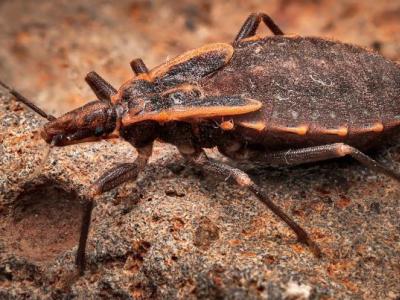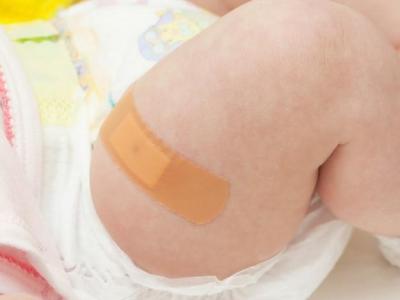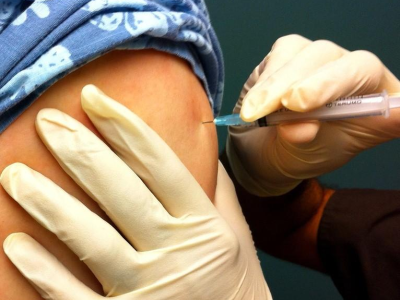Investigations surrounding MERS-CoV cases detected in hospitals should cast a wide net when testing health workers and other contacts, regardless of contact type or symptom level, researchers from Saudi Arabia reported yesterday, based on their experiences with a 2017 hospital outbreak in Riyadh.
In another MERS-CoV (Middle East respiratory syndrome coronavirus) research development, a case series of seven children with the disease sheds more light on clinical patterns in this age-group, affirming that the disease is typically milder in kids than in adults.
The World Health Organization (WHO) Eastern Mediterranean regional office said today in its overview of MERS-CoV cases for March that the global total at that point was 2,189 cases, 782 of them fatal. The vast majority are from Saudi Arabia.
In March, the country reported seven MERS-CoV cases and one death. The illnesses included a hospital case-cluster from Riyadh consisting of six cases and three deaths. Illness onsets ranged from Feb 23 to Mar 3, and an investigation into the virus transmission is still under way, the WHO said.
The agency said the demographic and epidemiologic features of the disease haven't shown any significant change and that the number of hospital-acquired cases has dropped since 2015 because of improved infection prevention and control practices.
Support for repeat health worker testing
Though many questions remain about MERS-CoV transmission, the virus is known to spread easily in healthcare settings. In the past, the virus has fueled hospital outbreaks in Saudi Arabia, as well as in South Korea, where several related outbreaks sickened 186 people, 36 of them fatally. Over the past few years, enhanced infection prevention and control efforts have tamped down the number and size of the outbreaks in Saudi Arabia, officials have said.
The new study—published yesterday in the International Journal of Infectious Diseases —focused on healthcare workers who were exposed to the virus during a June 2017 outbreak at King Saud Medical City in Riyadh, which occurred alongside outbreaks at two of the city's other hospitals.
During the outbreak investigation, all health workers who had unprotected contact with confirmed cases were isolated and tested 24 hours after exposure. They could leave isolation and return for duty after testing negative for the virus twice, 3 days apart, and remaining free of symptoms.
Further testing was done based on symptoms the workers experienced during the 14-day postexposure monitoring period.
Of 1,223 healthcare workers with exposure who were tested, 17 were positive for MERS-CoV infection. Of 15 who received adequate follow-up, 6 (40%) were positive on the first sampling, while 8 (53%) were positive on the second sampling. Time to negative testing among the 15 patients ranged from 4 to 47 days, with an average of 14.5 days. Infected workers typically needed two samples to demonstrate clearance.
The researchers said the first two index patients in the outbreak were super spreaders, with the first linked to nine health worker exposures and the second to six exposures. The third and fourth index patients each passed the virus to two healthcare workers. The team found that a range of exposures were related to the health worker infections and included routine nursing care, being in the same clinical area, having simple conversations, intubating, and connecting infected patients to breathing support.
All healthcare workers who tested positive were asymptomatic (53%) or had mild disease (46%).
The team said that infection control departments lack updated evidence-based infection control guidance for managing health workers who have been exposed to MERS-CoV, and experiences like theirs from hospital outbreaks in Saudi Arabia support the need for repeat sampling.
They said available evidence supports 2015 WHO guidance that calls for liberal testing of all close contacts and the need for repeated testing.
Though much has been learned about MERS-CoV in the 5 years since it emerged in humans, the authors wrote that there are still many knowledge gaps, including understanding the exact routes of indirect and direct exposure, how to predict super spreaders, how to manage exposed healthcare workers, and how to quickly identify the disease in the emergency department with rapid point-of-care testing.
Children's infections rare, typically mild
In the second study, another group of researchers reviewed clinical and lab findings of seven children who were treated for MERS-CoV at Prince Mohamed Bin Abdulaziz Hospital in Riyadh between April 2014 and November 2016. They described their findings in a recent issue of Frontiers of Medicine.
MERS-CoV infections in children are relatively rare, and the reason has been one of the puzzling features of the disease.
The seven children detailed in the study made up 2.4% of the 295 people with confirmed MERS-CoV infections who were treated at the hospital over that period.
Two of the children had underlying medical conditions, one with bronchial asthma and chronic renal disease and the other with sickle cell disease.
Four of the patients had gotten medical care within 1 to 7 days of symptom onset. The three others were asymptomatic contacts of confirmed MERS-CoV patients. Fever was the predominant symptom, followed by vomiting, diarrhea, cough, and shortness of breath.
Only two had abnormal lab levels, which indicated thrombocytopenia. Two children had abnormal chest x-ray findings. One of the kids needed ventilator treatment, and two received supplemental oxygen. All seven were discharged from the hospital without further complications.
The researchers said the findings confirm that infections are typically rare and mild in children, but raise questions about why, which they said could range from differences in exposure to differences in immunologic response. "Further studies are needed to better understand pediatric MERS-CoV in terms of clinical presentation, infectivity, and outcome," they wrote.
See also:
Apr 9 Int J Infect Dis abstract
Apr 6 Front Med abstract
Apr 10 WHO MERS-CoV situation update


















